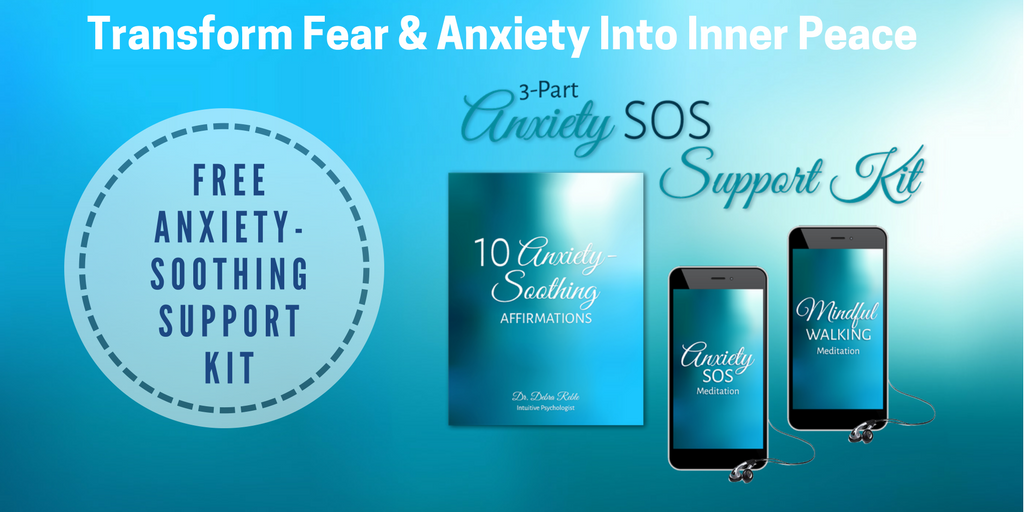 Being compassionate toward others doesn’t require us to engage in any unhealthy physical or emotional experiences a person may be having. In fact, compassion requires that we remove ourselves from their physical process, and instead support from a place where we feel stable and empowered. We can communicate that we love a person while still refusing to play a part in their drama. For instance, when someone wants to vent about a particular issue, we can listen with an open heart but still refrain from taking on their negativity, giving unsolicited advice, or trying to fix the situation. This allows us to provide loving support yet remain calm, nonreactive, and nonjudgmental.
Being compassionate toward others doesn’t require us to engage in any unhealthy physical or emotional experiences a person may be having. In fact, compassion requires that we remove ourselves from their physical process, and instead support from a place where we feel stable and empowered. We can communicate that we love a person while still refusing to play a part in their drama. For instance, when someone wants to vent about a particular issue, we can listen with an open heart but still refrain from taking on their negativity, giving unsolicited advice, or trying to fix the situation. This allows us to provide loving support yet remain calm, nonreactive, and nonjudgmental.
To be empathic toward others, even those who are mean, deceitful, or hurtful, requires that we open our hearts and feel compassion for ourselves, dissolving the walls we have erected around our hearts for self-protection. Vulnerability lays the groundwork for empathy. Science has demonstrated that humanity is united by empathy, a phenomenon that has been observed in children as young as one year of age. Research shows that, when we feel compassion, the most sophisticated thought centers in our brains light up, indicating that we are hardwired to be compassionate toward others. Compassion brings our brain into harmony with the vibration of love from our heart center. Therefore, the more compassionate we are with ourselves, the more our capacity for empathy increases so we can respond to the emotional needs of others.
Empathy is compassion in action. When someone is stuck in a dark hole, empathy is empowering them by offering a hand, and supporting them while they find a way to get themselves out. By contrast, sympathy is jumping into the dark hole with them and commiserating about how bad it is in the hole.
To protect your sensitive being and hold the space of love, you can practice these five steps of compassionate detachment:
Retreat: If you’ve ever attended a gathering or shared an office with an energy bully, you may have felt your eyes get heavy, sleepy, or dry, noticed your mood shifting from positive to negative, or suddenly become irritated or agitated. It’s important when you feel these symptoms that you pause, check in with yourself, and give yourself permission to remove yourself from the situation as soon as possible. You can get some fresh air, tell the person you will call them back, or drift over to mingle with people who give off positive energy. You can radiate love from a distance without losing yourself. Notice how this practice beneficially affects your physical and emotional well-being.
Re-evaluate: When encountering negativity, ask yourself, “How can this interaction with this person help me spiritually grow?” or “What is this person or situation showing me about myself?” Every exchange in life―good, bad, or neutral―is an opportunity to become free of your fear-based patterns and self-sabotaging behaviors, and open your heart in love.
Restore: After any negative encounter or situation, it’s crucial that you detox the lower vibrational energies you have absorbed. Taking deep cleansing breaths, showering, and spending time in nature are simple ways to clear your energy system. All of these will ground you and bring you back into energetic balance and resonance.
Raise: Raise your energy vibration by opening your heart and surrounding the person or situation in love. Love brings you into non-resonance with lower vibrations, and you can radiate love from a distance without compromising your own energies. As a conduit of love, you can strive to see “negative nellies” as catalysts to elevate your energy and engage your highest self.
Re-enter: When you re-enter the negative environment, do so slowly, with loving intent, and conscious awareness as to which of your buttons are likely to be pushed again. Make sure you are fully centered. Use the “broken record technique,” which is repeating a neutral statement to reduce any emotional volatility. Keep your interactions short and sweet, end conversations swiftly and with compassion, and lessen the time and duration you spend in toxic situations.
It is possible to be compassionate and accepting of another person while still holding that person accountable for their behavior. One of the barriers to practicing compassionate detachment is the fear of setting boundaries and holding people accountable. Not holding them accountable for their unhealthy choices, however, actually impedes their capability to help themselves and spiritually grow.
In reality, when we set healthy energetic boundaries and hold others accountable for their choices, we become more loving, compassionate people. When we take full responsibility for every choice in our lives, we cannot be a victim, only a creator. Above all, when we set compassionate boundaries, we love and value ourselves by showing others how we wish to be treated. Then we can be responsive even in the most challenging circumstances, and attract everyone and everything we need to manifest a more loving reality.


This is a keeper to reread many times!
Appreciating such powerful questions, Deb, which I will take into my morning practice, ” Re-evaluate: When encountering negativity, ask yourself, “How can this interaction with this person help me spiritually grow?” or “What is this person or situation showing me about myself?” Blessings to you and yours, today~ xo
I love the 5 R’s of compassionate detachment and will share them with my new Master of Social Work interns that I am mentoring and supervising for this academic year! I really appreciate this line, “Compassion brings our brain into harmony with the vibration of love from our heart center.” Being grounded from a place of love and empathy requires that we cultivate detached compassion every day and I am grateful for your wisdom and insights Debra!
The line that caught me is “compassionate and accepting of another person while still holding that person accountable for their behavior.” For many years I worked as a therapist in the addictions field — often in special programs designed to provide treatment rather than incarceration. I learned how to balance compassion and accountability from the best — often prosecutors, police and probation officers.
Love this Empathy is compassion in action that is a wonderful way to be and not always easy , Great points for reflection on one’s own levels of compassion xxx
What a powerful and important distinction between sympathy and empathy. Great article.
Thank you for sharing. Beautifully written:)
Thank yo for an insightful post! I am a very strong empath and understanding what that means can be a lifelong challenge! I have promised to always be truthful when I give readings, but I also have promised I will always be compassionate. Compassion is a strength that is very powerful!
This article is very helpful to me right now. Thank you so much. I like how you explained the difference between empathy and sympathy. I really appreciate the guidance on extending love while protecting oneself plus holding others accountable.